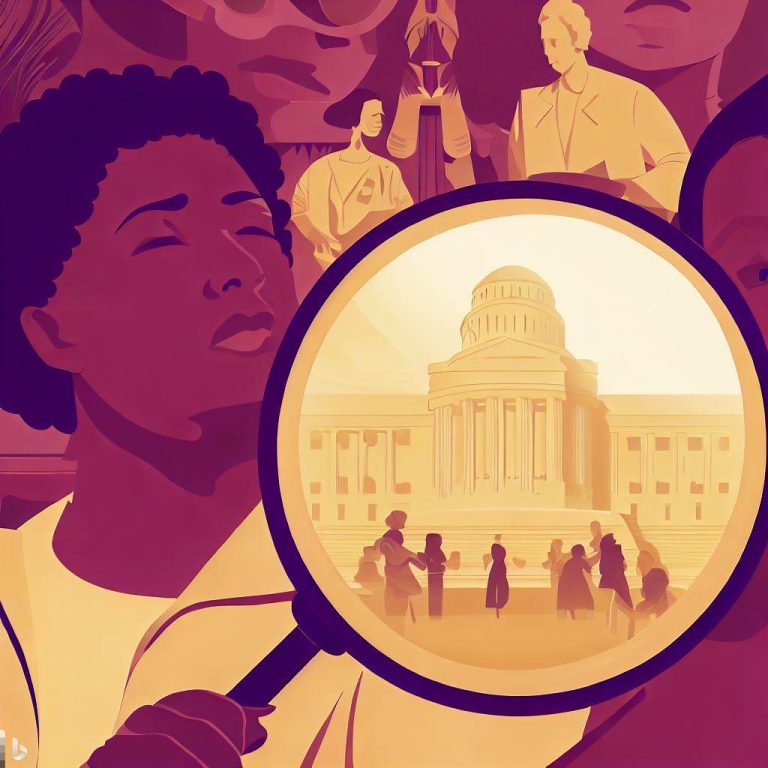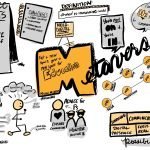By Micah Miner
The latest NAEP (National Assessment of Educational Progress) scores reveal an alarming yet unsurprising truth: our students lack basic knowledge of civics and history. Only 22% of 8th graders are proficient in civics, and 14% in history. These statistics point to a crisis that has been brewing for decades.
As an educator and district curriculum and technology leader whose part of their job is to oversee K-8 social studies instruction, I see this crisis reflected in classrooms every day. Many districts have had Social studies instruction been pushed aside in favor of math and reading remediation. Especially in under-resourced schools, it receives little instructional time, funding, or support. Numerous children spend years in school without receiving a superior social studies education, leaving them with a limited grasp of democracy and a disconnection from the various human experiences that influence civic life. In addition, book bans and state and local governments are restricting the authentic teaching of history education by removing references to anything certain political parties consider patriotic history.
This is an injustice rather than merely a problem. For students to fully engage in society, schools must prepare them. Yet we are systemically failing at this duty, especially for students from marginalized groups who most need to see themselves reflected in history and civics. Democracy suffers when we do not make these connections.
The research is clear. According to the American Enterprise Institute (Malkus, 2023), students receiving more social studies instruction show higher NAEP scores, greater civic knowledge and engagement, and stronger critical thinking skills. Research done in 2021 (Tyner et alk, 2021) among many others reiterate how important social studies is to not just reading instruction and information literacy, but to creating positive and balanced contributing citizens in society. They feel empowered to shape the future rather than subject to its currents.
Policymakers and education leaders must make social studies a priority again. Teachers need curriculum, training, and time to teach engaging, culturally sustaining lessons. Schools should partner with civic organizations and bring in speaker series. Districts might adopt innovative programs piloted elsewhere.
There are shining examples of what high-quality social studies education could be. In Chicago, Mikva Challenge students get real-world experience as poll watchers and help register young voters. My oldest daughter has been involved in this organization in Chicago for the past couple of summers, so she has learned a lot about civic engagement. It has provided her with the opportunity to meet with local and state governmental officials, politicians, nonprofit organizations, and many other ways to help her learn and elevate her civic engagement. Since it funded, she even gets paid to participate in it, which is really important since many high school students want or need jobs, so this organization can pay them the same as any other job, but provides invaluable and life-changing experiences in civics that promotes thoughtfulness, civic participation, and local voice and activism. But programs like these are outliers; most schools lack the resources to replicate them without substantial support and funding.
Revitalizing democracy requires investment in our youngest citizens. It means providing opportunities to debate issues, meet civic role models, and get involved in the community. It means teaching history not as a series of distant facts but as a living, breathing force that influences society today. In short, we must make the entire school experience a laboratory for citizenship.
Our democracy is an ideal we are still striving to reach. But by renewing our commitment to robust social studies education, particularly for those most often left out of civic life, we come closer. The data is a call to action; let us rise with one voice to answer. Our students deserve nothing less. Our future depends on it. Together, we must
demand social studies be returned to a place of prominence in our schools. Our democracy, society, and humanity depend on empowering each student with the knowledge and will to shape a better future. Though the road is long, the time for change is now.
This is our call of duty and call to justice. The voices and choices of citizens, not scores alone, breathe life into democracy. Let ours ring out until social studies education is restored as a central mission of schools and cornerstone of civic preparation. Our democracy depends on citizens equipped to navigate complex policy issues, understand diverse perspectives, and advocate for causes that foster progress. An informed, engaged, and empowered citizenry must include all groups, particularly those underrepresented over centuries of injustice.
The promise of democracy is that together we can build “a more perfect union” through an ongoing process of inclusion and renewal. But this promise cannot be fulfilled if we fail at preparing each new generation of citizens. The data is a call we must heed; the time for action is long overdue. Our students deserve and demand nothing less. The future remains unwritten, but the choice is ours. Let us choose justice. Let us choose democracy. Our humanity depends on it.
References:
Malkus, N. (2023, May 4). “US History Tests Show the Falling Floor for Student Achievement.” (“US History Tests Show the Falling Floor for Student Achievement”) American Enterprise Institute – AEI. https://www.aei.org/education/us-history-tests-show-the-falling-floor-for-student-achievement/
Tyner, A., Kabourek, S. (2021). How Social Studies Improves Elementary Literacy. Social Education, 85(1), 32-39. https://www.socialstudies.org/social-education/85/1/how-social-studies-improves-elementary-literacy
Revitalizing Democracy: Why Social Studies Education Matters
Micah Miner serves as the District Instructional Technology & Social Studies Coordinator at Maywood, Melrose Park, Broadview School District 89. He believes equity matters, not just globally, but locally and all students deserve equity and access in education and life. Micah has served as a teacher in K-12 settings in both regular classrooms and alternative schools, as a social studies department chair, instructional technology coach, adjunct professor in social studies and instructional technology, and as a school and district administrator. He can be reached on social media @minerclass on Twitter, his LinkedIn profile here, and his email micah.miner@maywood89.org.
- Micah Minerhttps://ace-ed.org/author/mminer/
- Micah Minerhttps://ace-ed.org/author/mminer/
- Micah Minerhttps://ace-ed.org/author/mminer/
- Micah Minerhttps://ace-ed.org/author/mminer/







